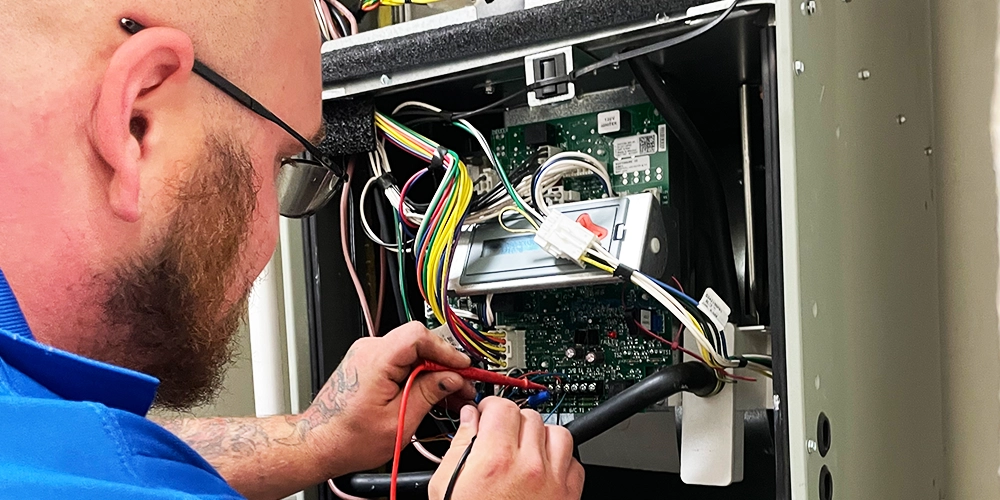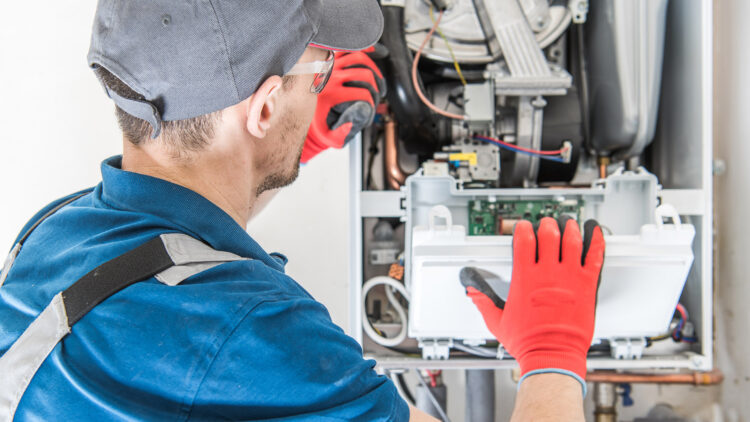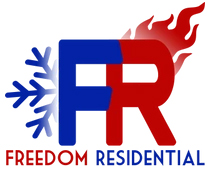
Reliable Furnace Installation Services For Your Comfort
As autumn settles in and winter approaches with its chilly grasp, a dependable furnace becomes essential for maintaining a comfortable and healthy home environment. But what do you do when your reliable furnace begins to show signs of wear or, worse yet, stops working altogether? This guide by Freedom Residential is designed to empower you with the knowledge you need to understand furnace installations, helping you make informed decisions for your home.

How Our Service Works
Initial Consultation and Assessment
Our process begins with a thorough consultation to understand your heating needs and assess the condition of your current furnace. We’ll discuss your preferences, budget considerations, and any specific requirements you may have.
Customized Replacement Plan
Based on our assessment, we’ll propose a customized furnace replacement plan that fits your home and budget. This includes selecting the right furnace size, type, and efficiency rating to optimize comfort and energy savings!
Professional Installation
Our certified technicians will handle the installation with precision and care. We follow industry best practices and ensure that your new furnace is installed safely and efficiently.
Testing and Quality Assurance
Once installed, we perform rigorous testing to ensure that your new furnace operates at peak performance. We’ll walk you through the operation and maintenance requirements to maximize longevity and efficiency.
Informative Guide to Furnace Installation
Gas Furnaces
Gas furnaces are the most common type found in homes, known for their efficient heating and lower operational costs. These furnaces burn natural gas to produce heat, which is then distributed throughout the home via ductwork.
Electric Furnaces
Electric furnaces are ideal for homes that do not have access to a natural gas line. They operate using electric resistance coils to generate heat, making them easier to install and maintain compared to gas furnaces.
Oil Furnaces
Oil furnaces are commonly used in areas where natural gas is not readily available. These furnaces burn heating oil stored in a tank on the property to produce heat, making them a dependable choice for heating in rural areas.
Propane Furnaces
Propane furnaces operate similarly to natural gas furnaces but use propane gas stored in a tank on the property. They are often chosen in rural areas where natural gas infrastructure is lacking or where homeowners prefer the versatility of propane for other appliances like stoves and water heaters. Propane furnaces burn cleanly and can be highly efficient.
Hybrid Furnaces
Hybrid furnaces combine the benefits of both gas and electric heating systems. These furnaces can switch between gas and electric heating based on outdoor temperatures and energy costs, optimizing efficiency and reducing heating expenses. Hybrid furnaces are ideal for homeowners looking to maximize energy savings while maintaining comfort throughout the year.
Common Signs You Might Need a New Furnace
- Age: Furnaces typically last 10-15 years with proper maintenance. If your furnace is approaching this age, consider scheduling a professional inspection to assess its efficiency and remaining life.
- Reduced Efficiency: Are your energy bills climbing despite maintaining the same thermostat settings? This could indicate a decline in your furnace’s efficiency, leading to higher operating costs.
- Frequent Repairs: If your furnace is a frequent guest on your repair list, with constant breakdowns and component failures, it might be more cost-effective to invest in a new system rather than continue with repairs.
- Uneven Heating: Does your home feel drafty in some areas while others are uncomfortably warm? This uneven heating could signify a malfunctioning furnace struggling to distribute heat effectively.
- Strange Noises: Any unusual noises emanating from your furnace, such as grinding, banging, or loud humming, could indicate internal component wear and tear.




Factors to Consider When Choosing a Furnace
- Climate: Consider your local climate when choosing a furnace. Colder climates require higher heating capacity furnaces compared to milder regions.
- Home Size and Insulation: A larger home with poor insulation will need a more powerful furnace to maintain comfortable temperatures.
- Fuel Source Availability and Cost: Evaluate the availability and cost of different fuel sources (natural gas, electricity, oil) in your area.
- Budget: Furnaces range in price based on type, efficiency level, and features. Set a realistic budget and explore options that balance efficiency with affordability.



